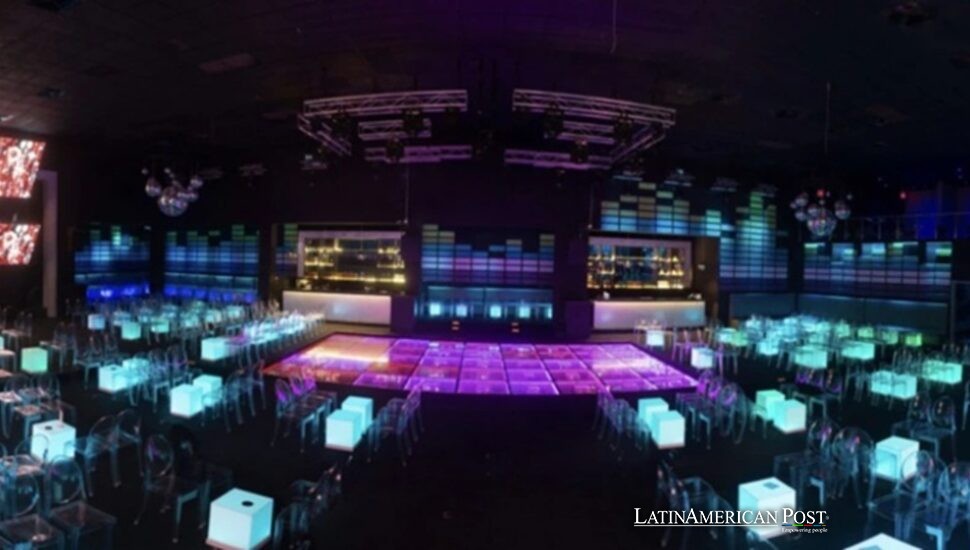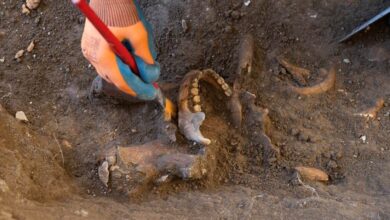Dominican Nights Lost with Jet Set’s Last Dance

Dominicans awoke to heartbreak after the iconic Jet Set nightclub, a social hub for more than five decades, collapsed into rubble. Once the epicenter of merengue revelry and cultural celebration, its sudden end brings sorrow and reflection across the nation.
A Fabled Stage of Rhythm and Light
The Jet Set nightclub stood as the pinnacle of Dominican nightlife for more than fifty years. The Jet Set nightclub drew both locals and tourists together within Santo Domingo’s lively heart. The nightclub’s sound system blasted merengue along with salsa, bachata music and various urban beats. The dance floor at Jet Set was filled with people who created connections of friendship and joy that crossed all social divides.
Jet Set changed from a simple place to an elegant location. Modern audio equipment, special lighting, and a nice interior design created an attractive space. Over time, Jet Set became famous. Its weekly events gave people a feeling of paradise. “Los lunes del Jet Set” was more than a party. It became a cultural event. Music icons such as Fernando Villalona, the Hermanos Rosario, Sergio Vargas, and the incomparable Rubby Pérez reigned supreme on its stage. International acts also took the spotlight: salseros like Óscar de León and Gilberto Santa Rosa electrified the crowd, while reggaeton luminaries like Don Omar brought an urban edge.
Yet beneath the star-studded lineup was a spirit of unity. Celebrities and politicians brushed shoulders with everyday people. Birthday celebrations and private functions mingled with impromptu dancing fueled by the merengue’s infectious trumpets. In short, Jet Set was a place where dreams, romance, and community thrived beneath strobe lights until the break of dawn.
That vibrant era ended abruptly on a Tuesday morning. A beloved fixture of Dominican culture collapsed into a chaotic mass of rebar and shattered concrete. With the dance floor caving in on hundreds of unsuspecting revelers, heartbreak rippled across the country. More than 200 people lost their lives, including at least two former Major League Baseball players and merengue’s famed Rubby Pérez. People who lived through it said they heard a very loud noise followed by cries as the roof collapsed. A place where people enjoyed music besides fun became only remains and pain.
Tragedy at the Heart of Dominican Life
In the days following the disaster, rescue crews and volunteers combed through heaps of debris, hoping to find anyone still clinging to life. The Dominican Emergency Operations Center called it one of the worst tragedies the Caribbean nation had ever faced. Exhausted authorities, pulled from all corners of the country and aided by international teams, carried out tense searches for survivors. Many described confronting a haunting soundscape of trapped voices and the crushing realization that each passing moment meant fewer chances of rescue.
The pain radiated beyond Santo Domingo. Families rushed from across the island—and even the United States—to locate missing relatives. Stories emerged of heart-wrenching final phone calls, like the one from provincial governor Nelsy Cruz, who reportedly alerted the country’s president from beneath the rubble. She did not make it out alive.
The grief was profound. Many fatalities resulted from traumatic head injuries as falling concrete beams and massive slabs buried patrons at their tables or pinned them on the dance floor. Medical teams described an emotional toll, with overworked doctors and nurses grappling with the shock of handling so many critical injuries.
The sorrow extended to the diaspora, as 17 U.S. citizens were among the deceased. Nations nearby and Dominican expatriate communities expressed their condolences, which demonstrated the nightclub’s cultural significance and the enduring connections between island residents and those who live abroad. The search for survivors concluded days after the event, but families kept coming together to identify their relatives and collect lost personal items from that tragic night.
A Vanished Legacy of Song and Dance
Jet Set’s empty remains show clearly how cultural practices people valued can disappear. Its end indicates a significant loss, more than just its unfortunate failure. Dominicans experienced a severed connection to the golden age of live music events and communal celebrations because of Jet Set’s closure. The vibrant Tuesday scene has irreversibly changed because the iconic “Lunes del Jet Set” events have ended.
Investigations into the cause remain ongoing. Some raise concerns about whether a recent fire weakened the structure, while experts point to potential design flaws, suggesting the venue’s aging roof struggled to support heavy equipment. Jet Set’s owner, Antonio Espaillat, pledged open cooperation with authorities, yet no final answers can resurrect the times or the people lost.
In the aftermath, memorials and funerals fill the spaces once reserved for dance and revelry. Mourners gather to honor the dead, including household names in Dominican culture and sports. President Luis Abinader declared an extended period of national mourning, and heartfelt tributes poured in for Rubby Pérez—his signature hat and sunglasses placed atop a casket at a poignant memorial.
Yet this sorrow also highlights what Jet Set represented: a dynamic patchwork of Dominican identity woven from music, camaraderie, and the unspoken promise that, for a few hours, everyday struggles might melt away on a crowded dance floor. In the aftermath, Dominicans reflect on a lifestyle that is now irreversibly changed, recognizing that these joyful spaces are fragile, susceptible to the weight of time, and, tragically, to the force of catastrophe.
Gone is the promise of another Monday night party, the swirl of vibrant lights, the swirl of voices singing in unison. What remains is the collective memory of a haven that welcomed everyone—from the modest shopkeeper to the famed baseball star—and asked only for a willingness to dance. While the heartbreak of this loss is immeasurable, so too is the legacy Jet Set leaves behind. Fifty years of nights built friendships and supported new performers. It defended the rhythms that define the Dominican spirit.
Also Read: Ecuador’s Most Violent City Battles Drug Gangs Escalating Warfare
The nation grieves this tragedy. The people keep Jet Set’s legacy alive. It brought many generations together. That action helps preserve a part of national identity. With stories with commemorations, in addition to promises to remember those who died, Dominican people pledge to respect the values of a nightclub. For numerous individuals, that place provided comfort plus belonging.




